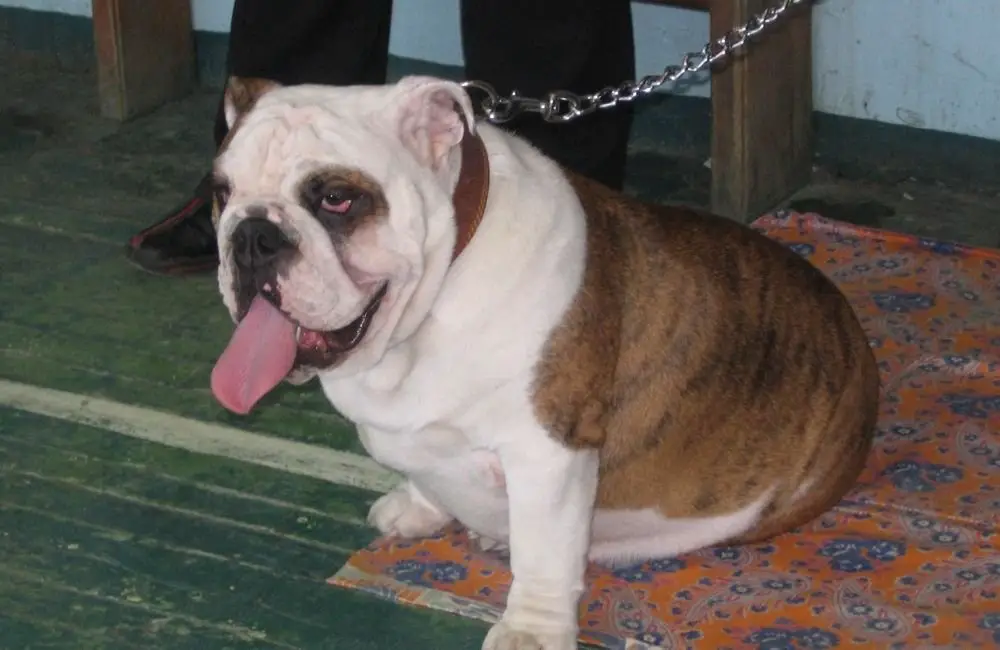20 Reasons Why Your Dog Is Breathing Fast
Has your dog been breathing faster than normal? Is this a normal thing, or is it not? Well, for starters, dogs keep changing their breathing patterns from time to time. For them, it is a very normal act.
However, being a pet owner, such occurrences often leave us in worry more than necessary. The normal respiratory rate of a dog ranges from 20 to 34 breaths per minute.
This is when they are not stressed or anxious, but rather in a jolly and relaxed mood. The normal respiratory rate exceptionally differs from breed to breed and from size to size.
Why is your dog breathing fast? In today’s article, we are basically going to have a detailed discussion about the dog’s respiratory system. What is normal and what is not so normal will be revealed here today.
We will also talk about reasons like lung disease, behavioral panting, anemia, etc. behind their breathing patterns. We will also discuss if one should worry when their dog starts breathing fast frequently.
To begin with, fast breathing among dogs has been illustrated by the appropriate term ‘tachypnea’, and difficulty in breathing is known as ‘dyspnea’. These terms are applicable for dogs of all breeds and sizes.
How Does A Dog’s Respiratory System Work?
A dog’s respiratory system is not much different than that of humans. It is pretty much the same. The organs that give way to normal breathing include your dog’s nose, throat, windpipe, and lungs.
So, if you notice that your furry best friend keeps panting or breathing heavily quite too often, it means any of the organs mentioned above are not doing their job proficiently.
The breathing process is too simple and can be exemplified in three simple steps.
- Firstly, oxygen is breathed in through their lungs. This process is called inspiration.
- Secondly, this oxygen gets transferred to the other parts of your furry friend’s body, including the red blood cells.
- Lastly, carbon dioxide is transferred to the lungs from the red blood cells. This is known as the act of exhaling.
Being a responsible pet owner/ parent, always be aware of the signs of heavy and fast breathing. Pay minute attention, and soon enough, you will be able to notice if your furry friend is having some trouble breathing or not.
Is He Breathing Faster Through His/ Her Nose?
The reasons that surround your dogs’ fast breathing rate can be pretty much anything. Maybe your pet is suffering from anxiety, stress, fear, heat, or fever. Some more critical medical conditions that can cause this include bronchitis, pneumonia, heart disease, or anemia.
Why Does My Pet’s Breath Sound So Restless?
This can be the symptom of the above-mentioned medical conditions. Digging into heavy meals late during the day can also be the reason behind this restlessness. Sometimes other underlying medical conditions such as dog Alzheimer’s or liver problems can also lead to a pattern of breathless breathing.
How To Differentiate Between Normal And Abnormal Breathing Patterns?
Rapid breathing in dogs is a common occurrence. Some of the immediate reasons that come into one’s mind include maybe his four-legged friend is excited, stressed, or rather just feeling hot.
But, if you notice anything abnormal about their breathing pattern, they get immediate medical help as soon as possible. This behavior often indicates early signs of getting a heat stroke.
If you notice that after your pet has relaxed and cooled down and goes back to their normal breathing rate, it was clearly a normal occurrence.
However, in cases as such, when even after resting, they still continue to breathe fastidiously, that is where you must start worrying about. Abnormal breathing often depicts other reasons like your pet is going through some emotional or physical problems.
20 Leading Reasons Why Your Dog is Breathing Fast
1. Overheating
If you really love your pet, never ever leave him in a locked-out car with the windows closed or in places that have no ventilation. This will simply heat your pet’s body rapidly. They will start feeling uneasy with their body temperature rising high, and their heart rate getting all pumped up. This will gradually lead them to breath at a very fast rate.
2. Exercise
Exercise is undoubtedly important. It can boost your dog’s metabolism and even help them stay in perfect shape. However, too much of it is not good either.

Depending on the breed, size, and fitness level of your pet, their breathing patterns post-exercise will differ. Check closely if this fast breathing continues for long intervals or stops when they have cooled down.
3. Heat Stroke
This is a very critical and common medical condition often found in dogs. It generally occurs when the heat levels in their body have exceeded the normal rate. In case of dogs, the normal temperature is 103° F. If it exceeds 106° F and he/ she is breathing very fast, become sure that he/ she is having a heat stroke. This medical condition is very dangerous and will lead to other problems such as diarrhea, vomiting, and even lead to collapsing.
4. Heart Disease
If your dog has an unhealthy or not so smooth function heart, they can end up breathing fast that too very often. The reason being their heart doesn’t get pumped with the optimum level of blood that it is both essential and needed. This further leads to the lack of transfer of oxygen to the other organs in their body.
All this results in an increased rate of respiration. Some of the common heart problems found in dogs include congestive heart failure, Patent Ductus Arteriosus, heartworm, heart valve, and parallel others.
5. Lung Disease
When your dog has critical underlying diseases such as asthma, lung cancer, lungworm, or even pneumonia, they can quite often perform the act of breathing very fast.
The only reason is that their lungs are not powerful enough and have lost their ability to expand normally and transfer oxygen efficiently. This drawback often leads to too much pressure on the other organs, including the heart.
6. Neurological Problems
Along with breathing at a fast rate if you also notice that your dog keeps falling down and has trouble getting up too, this means they are facing neurological problems.
Mild as well as chronic neurological problems lead to excessive panting and heavy breathing among your four-legged best friend. Some other reasons include having a seizure as well.
7. Overweight:
If your dog is obese then breathing heavily and panting is a very common occurrence for them. Why? Well, because it takes extra energy to keep moving along with that extra weight.
No matter what they do, their oxygen requirement is more, and as a result, they keep breathing fast. Being overweight also lowers the level of lung function in their body.
8. High Blood Pressure
Unlike pet owners, pets do not generally suffer from high blood pressure. Even if they do, it becomes a very common reason for them to generate excessive panting. Certain underlying medical conditions, such as kidney problems or Cushing’s problems, can lead to high blood pressure. High blood pressure can prevail in dogs of all breeds, sizes, and age groups.
9. Doggy Alzheimer’s
This medical condition is mostly found in dogs belonging to the older age group. They may frequently get restless or have random panting episodes.
Dogs with this medical condition often forget what they were doing. Some even lose track of the daily activities they perform. Quite often, they do not get enough sleep and face trouble getting comfortable.
10. Metabolic Disorder/ Cushing’s Disease
Also popularly known as hyperadrenocorticism. This mainly occurs when adrenal glands produce more than essential amounts of cortisol. Cortisol hormone is important, but an excess of it can only lead to more damage.
If your dog has been affected by this disease, you will encounter them panting, having hair loss, excessive water requirements, and the formation of a potbelly.
11. Giving Birth
The female dogs breathe heavily at the time of bringing new life in the world. They get all stressed up, are anxious, and are in need of more oxygen. Hence, they breathe more, pant more, and often give their owners enough reason to worry about. But, don’t worry, this is pretty normal.
12. Age
Just like humans, even the dog’s system becomes weak and does not function that well with the passage of time. Normal breathing leads to oxygenating blood, not that easily. Thus, they end up breathing heavily, fastly and panting from time to time.
13. Having Fever
If your fur baby is having fever, its nose is blocked, and they are unable to breathe efficiently. This causes them to breathe fast and heavily. Some of the common reasons for your furry friend to get fever include infections that can be viral, fungal, or even bacterial.
14. Poisons
Dogs are greedy, and they end up eating almost anything. If they get contaminated with toxins or poisons in their environment or even in their food, they will immediately start breathing at a rapid rate. Being a pet owner, you must be responsible enough to be aware of what they put into their mouth.
15. Laryngeal Paralysis
In this condition, the Laryngeal cartilages at the mouth of the windpipe do not function the way they should. Hence, making breathing a difficult task to do. You will notice the dog making weird noises and putting a lot of effort into the act of breathing. As a result, they breathe very fast and heavily.
16. Anemia
If the level of red blood cells in your furry baby’s body is lower than normal, it means they are a patient of Anemia. This makes the transportation of oxygen to the other organs quite challenging and a difficult task. Hence your dog gets weak and starts breathing rapidly.
17. Tick-borne Disease
Canine Anaplasmosis, Lyme Disease, Canine Ehrlichiosis, Rocky Mountain Spotted Fever, Canine Bartonellosis, Canine Hepatozoonosis, and Canine Babesiosis are some of the very common tick diseases found in dogs.
Ticks are nothing but small parasites attached to the dog’s body. They slowly and gradually suck blood from your furry friend’s body, leading them to pant and breathe fast.
18. Acid-Base Disorders
If the certain pH level in your four-legged friend’s body is not maintained, their other organs won’t function optimally. This also leads to the kidneys and lungs not operating properly. All of this can lead to excessive breathing problems in your dog.
19. Pain/ Trauma/Accidents
Certain unpredicted and sudden shocks, pains, or accidents can leave your pet feeling devastated and out of breath. In situations like this, the amount of oxygen required in their brain is increased
and leads them to breathe at a heavy rate that too very rapidly.
20. Behavioral Panting
Phobias, anxieties, stress, and fear will lead your dog to breathe heavily and rapidly. If certain conditions prevail too often, it means your best friend is suffering from mild to chronic psychological problems. Such episodes cause them to feel restless and breathing fast.
In conclusion, we would like to say that the best probable remedy is to be a responsible pet owner and to stay observant. If you notice anything abnormal and happening quite often, seeking medical help stands to be the wisest step that could be taken here.







